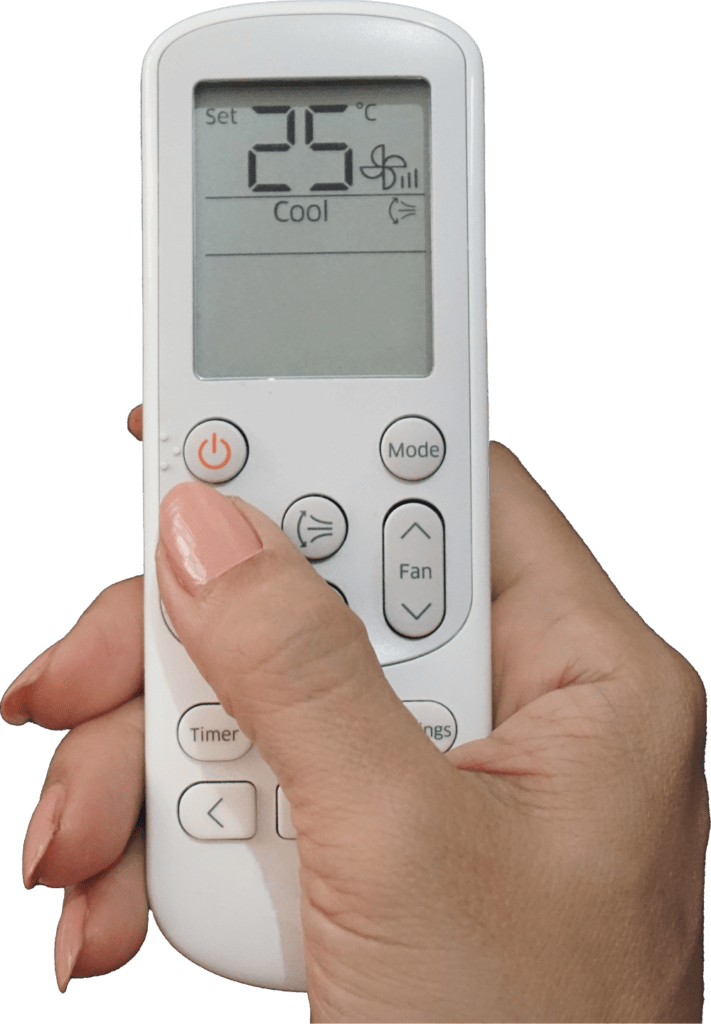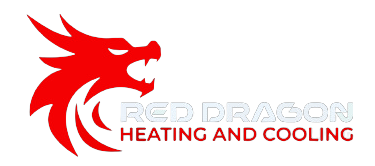- 518.348.9000
- [email protected]
- 117 Van Rd Gloversville,NY 12078
Maximize Your Summer Comfort: The Ultimate Guide to Heat Pump Maintenance for Cooling Season in Fulton and Montgomery Counties
As the vibrant summer season arrives in Upstate New York, homeowners in Gloversville, Johnstown, Broadalbin, Mayfield, Fonda, Amsterdam, and Northville rely on their heat pumps to switch gears from heating to providing a cool, comfortable oasis. A heat pump is a remarkable piece of technology, offering year-round comfort in a single, efficient system. However, to ensure it performs flawlessly during the hottest days, proactive maintenance is key. At Red Dragon Heating and Cooling, we are the local experts in heat pump maintenance, and we’ve created this comprehensive guide to help you understand why preparing your system for its cooling duties is one of the smartest investments you can make.
Why is Pre-Season Maintenance for Cooling So Crucial?
After a long, hard winter of heating your home, your heat pump needs a little TLC before it takes on the challenge of summer cooling. The components used for cooling are the same ones used for heating; the system simply reverses its operation. This means any wear and tear from the winter will directly impact its summer performance. Scheduling a professional maintenance visit in the spring is a proactive step with numerous benefits:
- Peak Energy Efficiency: A clean, well-tuned heat pump uses significantly less energy to cool your home. Our maintenance service ensures that coils are clean, refrigerant levels are correct, and all parts are working in harmony, which translates directly to lower electricity bills.
- Enhanced Cooling Performance: A properly maintained heat pump will cool your home more effectively and evenly, eliminating hot spots and ensuring consistent comfort from room to room.
- Prevention of Costly Breakdowns: The most common time for an HVAC system to fail is during the first major heatwave of the season. A spring tune-up allows our technicians to identify and address potential issues—like worn capacitors or low refrigerant—before they lead to a complete system breakdown on a 90-degree day.
- Extended System Lifespan: Regular maintenance reduces stress on critical components like the compressor and fan motors. This preventative care can add years to the life of your heat pump, delaying the need for a costly replacement.
- Improved Indoor Air Quality: Your heat pump circulates all the air in your home. Our maintenance includes cleaning coils and checking the air filtration system, which helps to reduce the circulation of dust, allergens, and other airborne pollutants.
- Maintained Warranty Coverage: Most heat pump manufacturers require proof of annual maintenance to keep the warranty valid. A pre-season tune-up ensures you stay in compliance.
The Red Dragon Comprehensive Cooling Season Maintenance Checklist
Our NATE-certified technicians perform a detailed, multi-point tune-up designed to prepare your heat pump for the rigors of summer. Our checklist is far more than a quick look-over; it’s a deep dive into the health of your system:
- Inspect and Clean Outdoor Condenser Coil: We thoroughly clean the outdoor coil to ensure it can efficiently release the heat absorbed from your home.
- Inspect and Clean Indoor Evaporator Coil: A clean indoor coil is crucial for both cooling and dehumidification.
- Check Refrigerant Levels and Pressures: We check for the precise refrigerant charge required for optimal performance. An incorrect charge is a leading cause of inefficiency and damage.
- Inspect for Refrigerant Leaks: We use electronic leak detectors to find and address any potential leaks, protecting both your system and the environment.
- Clean and Clear Condensate Drain Line: We flush the drain line to prevent clogs that can cause water damage and system shutdowns.
- Inspect and Test Capacitors: Capacitors are essential for starting the compressor and fan motors. We test them to ensure they are within the proper range to prevent motor failure.
- Inspect and Tighten Electrical Connections: Loose connections can be a safety hazard and can damage major components. We check all wiring and terminals.
- Test Thermostat Calibration: We ensure your thermostat is accurately reading the room temperature and communicating correctly with the heat pump.
- Inspect and Test the Reversing Valve: We verify that the valve that switches the system from heating to cooling is functioning properly.
- Measure Blower Motor Amperage: We check that the indoor blower motor is not drawing too much power, which can indicate a future failure.
- Inspect and Lubricate Motors: We lubricate the fan motors to reduce friction and wear.
- Replace or Clean Air Filter: We’ll replace your standard air filter, a critical step for maintaining proper airflow and indoor air quality.
Serving Our Communities: Pre-Season Heat Pump Maintenance Across Fulton and Montgomery Counties
Red Dragon Heating and Cooling is proud to be a local business, deeply invested in the comfort of our neighbors across the region.
Gloversville and Johnstown: Our Commitment to Our Hometowns
As the core of our service area, we are dedicated to providing the residents of Gloversville and Johnstown with exceptional heat pump maintenance. From the historic homes near the Johnson Hall State Historic Site to the newer developments, we ensure every system is ready for summer.
Broadalbin: Ensuring Cool Comfort for All
Whether your home is a historic gem near the Broadalbin Hotel or a modern residence, our maintenance service is tailored to your needs. We help ensure that after a day at the Broadalbin Town Park, you return to a perfectly cool home.
Mayfield: Lakeside Living, Uninterrupted
Summer in Mayfield is all about enjoying the Great Sacandaga Lake. We make sure a failing heat pump doesn’t interrupt your fun. Our pre-season maintenance ensures your home remains a cool retreat after a day on the water.
Fonda: A Tradition of Reliable Service
In a village with a rich heritage like Fonda, dependable service is paramount. We provide meticulous heat pump maintenance to the community, ensuring homes near the National Kateri Tekakwitha Shrine and beyond are prepared for the summer heat.
Amsterdam: Cooling a Diverse Community
Amsterdam’s wide range of housing, from the historic Amsterdam Castle area to its sprawling suburbs, requires a knowledgeable touch. Our technicians have the expertise to maintain any type of heat pump, ensuring every resident can enjoy a cool home after a visit to Riverlink Park.
Northville: Your Gateway to a Comfortable Summer
As the gateway to the Adirondacks, Northville is a hub of summer activity. We provide the essential heat pump maintenance that allows residents to enjoy all the area has to offer, knowing a cool, comfortable home awaits them.
The Dangers of DIY Maintenance
While homeowners can and should perform simple tasks like changing the air filter and keeping the outdoor unit clear of debris, a comprehensive tune-up should always be left to a professional. A heat pump is a complex piece of equipment that involves high-voltage electricity and high-pressure refrigerant. Attempting to service it yourself can lead to:
- Personal Injury: Risk of electric shock or exposure to chemical refrigerants.
- System Damage: An incorrect refrigerant charge or a simple mistake can cause catastrophic damage to the compressor, the most expensive component of your system.
- Voided Warranty: Many manufacturers will void the warranty if service is performed by an uncertified individual.
The Value of a Red Dragon Maintenance Plan
To make proactive care easy and affordable, we offer comprehensive maintenance plans. These plans are the best way to protect your investment and ensure year-round comfort. Benefits typically include:
- Two Annual Tune-Ups: One for the cooling season (spring) and one for the heating season (fall).
- Priority Scheduling: If you do have a breakdown, you move to the front of the line.
- Discounts on Repairs: Members receive a discount on any necessary repairs.
- Peace of Mind: Knowing your system is being professionally cared for and is unlikely to fail when you need it most.
Frequently Asked Questions About Heat Pump Cooling Maintenance
Q: When is the best time to schedule my cooling maintenance?
A: The ideal time is in the spring, between March and May, before you need to start using your A/C regularly.
Q: How long does a maintenance visit take?
A: A thorough maintenance service typically takes 60-90 minutes.
Q: What if you find a problem during the tune-up?
A: Our technician will immediately inform you of the issue, explain the necessary repair, and provide you with an upfront price. We will only proceed with the repair upon your approval.
Q: My heat pump seems to be cooling fine. Do I still need maintenance?
A: Yes. Many serious problems start small and don’t immediately affect performance. Regular maintenance catches these issues before they become major, expensive failures. It’s about prevention, not just reaction.
Prepare for Summer with Red Dragon
Don’t wait for the first heatwave to find out if your heat pump is ready for summer. Be proactive and schedule your cooling season maintenance with Red Dragon Heating and Cooling today. Our friendly team is ready to help you set up an appointment and ensure your home remains a cool, comfortable sanctuary all summer long. We are your trusted local experts, committed to providing exceptional service to our communities in Fulton and Montgomery Counties.
A Deeper Dive into the Red Dragon Maintenance Process
To truly appreciate the value of a professional tune-up, it’s helpful to understand the details behind some of the key steps on our checklist. This isn’t just a visual inspection; it’s a hands-on, data-driven analysis of your system’s health.
The Importance of Coil Cleaning
Your heat pump has two coils that are critical for heat exchange: the indoor evaporator coil and the outdoor condenser coil. Over time, these coils become coated with a layer of dirt, dust, pollen, and other debris.
- Outdoor Condenser Coil: This coil is responsible for releasing the heat absorbed from your home into the outdoor air. A layer of grime acts like an insulating blanket, trapping the heat in the system. This forces the compressor to work much harder and at a higher pressure, consuming more energy and leading to premature wear. Our technicians use a professional-grade, non-acidic coil cleaner and a gentle washing process to remove this buildup without damaging the delicate aluminum fins.
- Indoor Evaporator Coil: This coil absorbs heat from your indoor air. A dirty indoor coil not only restricts airflow but also becomes a breeding ground for mold and bacteria, which can then be circulated throughout your home, impacting your indoor air quality. We inspect the indoor coil and recommend a professional cleaning if significant buildup is present.
The Science of Refrigerant Charging
Your heat pump is designed to work with a very specific amount of refrigerant, known as the “charge.” An incorrect charge—either too much or too little—is a major cause of inefficiency and component failure.
- Undercharged System (Low Refrigerant): This is usually due to a leak. It reduces cooling capacity, causes the system to run constantly, and can lead to the evaporator coil freezing into a block of ice. It also starves the compressor of the cooling it needs, leading to overheating and failure.
- Overcharged System (Too Much Refrigerant): This is often the result of an amateur adding refrigerant without properly diagnosing the system. An overcharge can cause a dangerous increase in system pressure, leading to a condition called “liquid slugging,” where liquid refrigerant floods the compressor, causing catastrophic failure.
Our technicians use a method called the “superheat and subcooling” method to verify the refrigerant charge. This involves taking precise temperature and pressure readings at different points in the system to ensure the charge is perfectly optimized for your specific equipment and the current outdoor conditions. This is the only professional way to ensure your system is charged for maximum efficiency and longevity.
Electrical Component Check: Preventing a Chain Reaction
The electrical components of your heat pump are the unsung heroes of the system, but when they fail, they can cause a chain reaction of damage.
- Capacitors: Your system has at least two important capacitors: one for the compressor and one for the outdoor fan motor. These components provide a burst of energy to start the motors. Over time, they degrade and lose their ability to hold a charge. A weak capacitor will cause the motor to struggle to start, leading to overheating and eventual failure. During our maintenance, we test the microfarad reading of each capacitor. If it’s outside the manufacturer’s specified range, we recommend replacing it. This simple, inexpensive preventative step can save you from a much more expensive motor replacement down the road.
- Contactors: The contactor is an electrical switch that turns the outdoor unit on and off. The electrical contacts can become pitted and burned over time, leading to intermittent operation or a complete failure to start. We inspect the contactor for signs of wear and tear.
By proactively checking and replacing these small electrical components, we prevent the cascading failures that often lead to the most expensive repairs.
The Long-Term Financial Impact of Regular Maintenance
While the upfront cost of an annual maintenance visit is a consideration, the long-term financial benefits far outweigh the expense. Let’s break down the real-world economics of proactive heat pump care.
Consider a typical scenario: A homeowner in Gloversville has a 10-year-old heat pump that has never been professionally maintained. Over the years, the outdoor coil has become heavily soiled, the refrigerant charge has slowly leaked down by about 15%, and the blower motor capacitor is weakening. The system still runs, but it’s working much harder than it should.
- Increased Energy Costs: Because of the dirty coil and low refrigerant, the system’s efficiency has dropped by approximately 25%. If this homeowner typically spends $600 per year on summer cooling, they are now spending $750—an extra $150 per year, year after year.
- Premature Component Failure: The weakening capacitor is forcing the blower motor to work harder. Within the next year or two, the motor will likely fail, requiring a $400-$600 repair. The low refrigerant charge is also causing the compressor to run hotter than designed, significantly shortening its lifespan. A compressor replacement can cost $1,500-$2,500 or more.
- Total System Replacement: Because of the cumulative damage, this heat pump, which should have lasted 15-20 years with proper care, will likely need to be completely replaced at age 12-13, costing the homeowner $5,000-$8,000 or more, several years earlier than necessary.
Now, contrast this with a homeowner in Johnstown who invests in annual spring maintenance. The cost of the maintenance visit is typically $150-$200 per year. Over a 15-year lifespan, that’s a total investment of $2,250-$3,000. However, because their system is always running at peak efficiency, they save approximately $100-$150 per year on energy costs. More importantly, they avoid the premature component failures and the early system replacement. Their heat pump lasts its full expected lifespan, and when it does eventually need to be replaced, it’s a planned, budgeted expense, not an emergency.
The math is clear: regular maintenance is not an expense; it’s an investment that pays for itself many times over.
Understanding the Seasonal Transition: Why Spring Maintenance Matters
Your heat pump works hard all winter long, running in heating mode to keep your home warm. When spring arrives and you switch it over to cooling mode, the system undergoes a significant operational change. The reversing valve switches the direction of the refrigerant flow, and components that were relatively idle during the winter—like the outdoor condenser coil and fan—suddenly become the workhorses of the system.
This seasonal transition is a critical time. Any wear and tear that occurred during the winter, any minor issues that developed, will now be put to the test under the different stresses of cooling mode. This is precisely why a pre-cooling season tune-up is so important. It’s our opportunity to catch and address these issues before they cause a breakdown during the first heat wave of the summer.
During a spring maintenance visit, we are specifically looking for signs of stress from the winter heating season:
- Refrigerant Leaks: Temperature fluctuations during the winter can cause connections to expand and contract, potentially creating small leaks.
- Electrical Wear: The high electrical demand of winter heating can degrade capacitors and contactors.
- Outdoor Unit Debris: Leaves, seeds, and other debris can accumulate around and inside the outdoor unit during the fall and winter, restricting airflow.
By addressing these issues in the spring, we ensure your heat pump is ready to provide reliable, efficient cooling all summer long.
Red Dragon's Community Commitment
At Red Dragon Heating and Cooling, we are more than just a service provider; we are an active and engaged member of the Fulton and Montgomery County communities. We believe in giving back to the places we call home. That’s why we proudly donate 5% of our profits to local school sports programs in Gloversville, Johnstown, Broadalbin, Mayfield, Fonda, Amsterdam, and Northville.
We believe that investing in our youth is investing in the future of our communities. When you choose Red Dragon for your heat pump maintenance, you’re not just choosing a company that will take care of your home; you’re choosing a company that cares about our community and is committed to making a positive difference. Your business helps us support the next generation, and for that, we are grateful.
Contact Red Dragon Today: Your Comfort is Our Priority
Don’t wait for a breakdown to think about your heat pump. Be proactive and schedule your pre-season cooling maintenance with Red Dragon Heating and Cooling today. Our friendly, knowledgeable staff is ready to answer your questions and to schedule a convenient appointment time that works with your busy schedule.
We serve all of Fulton and Montgomery Counties, including Gloversville, Johnstown, Broadalbin, Mayfield, Fonda, Amsterdam, and Northville. We are your local, trusted experts for all things HVAC, and we are committed to providing you with the highest quality service and the best possible customer experience.
Call us today or visit our website to schedule your heat pump cooling season maintenance. Let us help you enjoy a cool, comfortable, and worry-free summer. Your comfort is our priority, and we look forward to serving you.
WHAT WE DO
Expert HVAC Care, Always.


Residential Installations
Trust us to transform your space into a haven of perfect climate control with our expert HVAC installations.

Commercial Installations
Trust us to transform your space into a haven of perfect climate control with our expert HVAC installations.

Thermostat Installations
Trust us to transform your space into a haven of perfect climate control with our expert HVAC installations.

Air Quality Solutions
Trust us to transform your space into a haven of perfect climate control with our expert HVAC installations.
